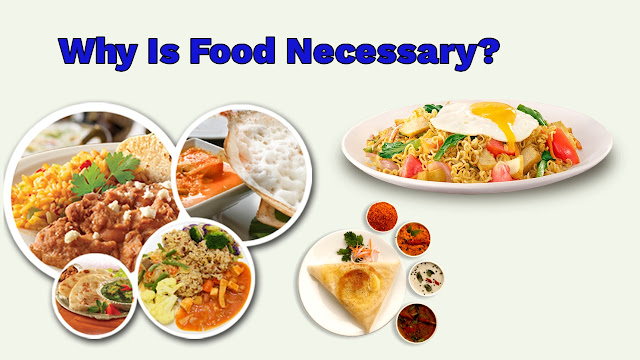In our fast-paced world, we frequently overlook the significance of food. It is much more than just a method to satisfy our hunger. Food is essential in nourishing our bodies, supporting growth and development, and maintaining overall health. This article will delve into the importance of food and examine why it is a fundamental necessity for human beings.
1. Fuel for Our Bodies
At its core, food serves as fuel for our bodies. Just like a car needs gasoline to run, our bodies require energy to function. This energy is derived from the macronutrients found in food, such as carbohydrates, proteins, and fats. Carbohydrates provide a quick energy source, proteins aid in tissue repair and growth, while fats reserve long-term energy.
2. Essential Nutrients
Beyond providing energy, food is a rich source of essential nutrients that our bodies cannot produce on their own. These nutrients include vitamins, minerals, and trace elements, all of which are crucial for various bodily functions. For instance, vitamin C supports our immune system, iron is essential for oxygen transport, and calcium is vital for strong bones and teeth.
3. Growth and Development
During childhood and adolescence, proper nutrition is especially crucial for growth and development. Adequate intake of nutrients during these stages ensures that children reach their full potential in terms of height, weight, and cognitive development. A well-balanced diet lays the foundation for a healthy and productive life.
4. Maintaining a Healthy Weight
Contrary to common misconceptions, maintaining a healthy weight is not solely about restricting food intake. Instead, it involves consuming the right foods in appropriate portions. A balanced diet, rich in fruits, vegetables, and whole grains, combined with regular physical activity, can help manage weight effectively.
5. Cognitive Function and Mental Health
What we eat can significantly impact our cognitive function and mental well-being. Omega-3 fatty acids, commonly found in fish and nuts, are associated with improved brain health. On the other hand, a diet high in processed foods and added sugars may lead to mood swings and decreased cognitive abilities.
6. Disease Prevention
Proper nutrition is an essential component of disease prevention. Certain foods, like antioxidants-rich fruits and vegetables, can help neutralize harmful free radicals and reduce the risk of chronic diseases such as heart disease, diabetes, and certain types of cancer.
7. Boosting Immune System
A well-nourished body is better equipped to fend off infections and illnesses. Nutrients like vitamins A, C, D, and zinc are crucial in supporting our immune system, helping us stay healthy and recover faster from illnesses.
8. Physical Performance and Endurance
For athletes and active individuals, food significantly influences physical performance and endurance. Consuming the right balance of carbohydrates, proteins, and fats can enhance athletic abilities, improve stamina, and aid post-exercise recovery.
9. Social and Cultural Aspects
Food is not just a source of sustenance; it also holds immense social and cultural significance. Sharing meals with family and friends fosters bonds and strengthens relationships. Additionally, traditional cuisines reflect the unique cultural heritage of different regions, making food an integral part of our identity.
10. Enjoyment and Pleasure
Finally, we should remember the immense satisfaction that comes with relishing scrumptious and expertly cooked meals. Food is intended to be relished, and gastronomic adventure can provide happiness and solace in our existence.
In conclusion, food is not just a basic necessity for survival; it is a key element that shapes our health, well-being, and overall quality of life. From providing essential nutrients to supporting growth and disease prevention, the significance of food cannot be overstated. By making informed and mindful choices about what we eat, we can truly harness the power of food to lead healthier and more fulfilling lives.









![Herbalife Afresh के फायदे, Herbalife Energy Drink Afresh Benefits in Hindi [ Quick & Hidden Info. ] 2025](https://blogger.googleusercontent.com/img/b/R29vZ2xl/AVvXsEhf4kesg1PtKwAQU8gYb2LnpzvYNl-lXq26YelqxU_XfUjo3G01uNPFxrf0tDLNERahMYAy2Y_4im7RTXvTb9vBDcbkqNsvZSoB-XQPoyw8Oq3Fp6m5gwx5araL8cDvbXYUsUqO3ikkGkZjlBQfa_wiOl2Cij3XNBfG9lP6S_WPTjWWcL3ZMVrIOaPE/w100/Black%20White%20Neutral%20Elegant%20Skin%20Care%20Cosmetic%20New%20Product%20Podium%20(Facebook%20Post%20(Landscape)).png)

).png)








0 Comments